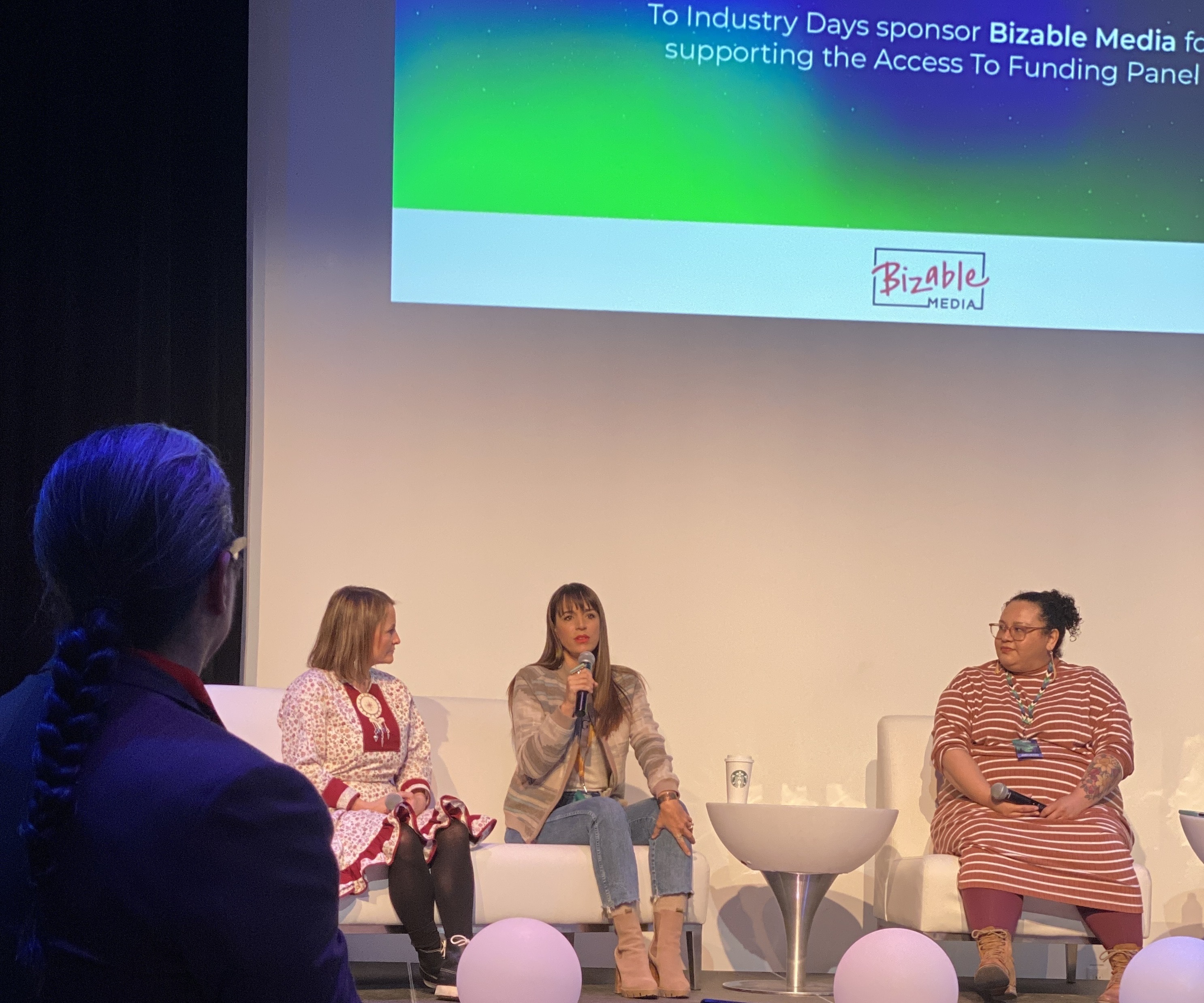
- Details
- By Native News Online Staff
TORONTO–Emmy-award-winning filmmaker, and industry leader Jennifer Loren recently presented her expertise at this year’s imagineNATIVE Film + Media Arts Festival. Part of the festival’s Industry Days, Loren delved into Cherokee Nation Film Office (CNFO) incentives and initiatives to help #morenatives get access to the film industry.
“I am thrilled to be asked to participate in the phenomenal programming hosted by imagineNATIVE,” Loren, a citizen of the Cherokee Nation, said. “It is an incredible honor to partner with an organization that is recognized as the global center for Indigenous media arts and to share in its commitment to creating a greater understanding of Indigenous people and cultures by supporting the diverse work of Indigenous content creators.”
The largest annual Indigenous media arts event in the world, the imagineNATIVE festival highlights film, video and audio, along with featuring interactive media and digital works created by Indigenous artists. These worldwide compelling and distinctive works reflect the diversity of Indigenous nations by showcasing insights into various perspectives, cultures and arts in contemporary media.
Loren’s extensive experience in film and television industries dates back to 2001. She has worked as a documentarian, executive producer, on-camera host and journalist. In 2019, she joined CNFO and was recently named an Oklahoma Film ICON by deadCenter Film. Her other accolades include Woman of the Year by Tulsa YWCA and the Tulsa Mayor's Office, as well as a Great Plains Distinguished Lecturer by Tulsa Press Club.
During the “Access to Funding” panel, Loren explained CNFO’s mission to increase Native visibility in every level of film and television productions as well as develop economic opportunities in Cherokee Nation. With access to approximately 7,000 square miles throughout northeastern Oklahoma, CNFO offers the first-ever Native crew, talent and business/support services databases.
The 23rd annual imagineNATIVE Film + Media Arts Festival is broken down into a two-part in-person (Oct. 18-23) and virtual (Oct. 24-30) a 12-day entertainment event. The festival featured over 147 works from 16 countries in more than 55 Indigenous languages. These include 19 feature films, 13 thematic shorts programs, nine audio works, nine digital and interactive works, six exhibitions, five music videos, and an artist spotlight on visual artist and Mohawk filmmaker Shelley Niro.
As more opportunities blossom for Native filmmakers and creatives, imagineNATIVE offers resources and accessibility to up-and-coming artists through workshops, panel discussions and networking opportunities via its Industry Days. These audience engagement activities focus on themes of pitching and access to stories, space, music and funding.
The festival continues online through Oct. 30.
More Stories Like This
Two Indigenous Group Exhibits Opening January 9, 2026 at WatermarkWatermark Art Center to Host “Minwaajimowinan — Good Stories” Exhibition
Museums Alaska Awards More Than $200,000 to 12 Cultural Organizations Statewide
Zuni Youth Enrichment Project Takes Top Emerging Artist Apprentices to Phoenix for Artistic Exploration and Cultural Immersion
From Dishwasher to Award-Winning Chef: Laguna Pueblo's Josh Aragon Serves Up Albuquerque's Best Green Chile Stew
Help us defend tribal sovereignty.
At Native News Online, our mission is rooted in telling the stories that strengthen sovereignty and uplift Indigenous voices — not just at year’s end, but every single day.
Because of your generosity last year, we were able to keep our reporters on the ground in tribal communities, at national gatherings and in the halls of Congress — covering the issues that matter most to Indian Country: sovereignty, culture, education, health and economic opportunity.
That support sustained us through a tough year in 2025. Now, as we look to the year ahead, we need your help right now to ensure warrior journalism remains strong — reporting that defends tribal sovereignty, amplifies Native truth, and holds power accountable.
 The stakes couldn't be higher. Your support keeps Native voices heard, Native stories told and Native sovereignty defended.
The stakes couldn't be higher. Your support keeps Native voices heard, Native stories told and Native sovereignty defended.
Stand with Warrior Journalism today.
Levi Rickert (Potawatomi), Editor & Publisher


